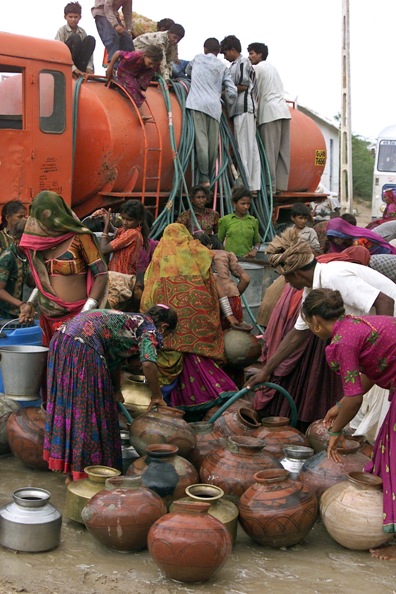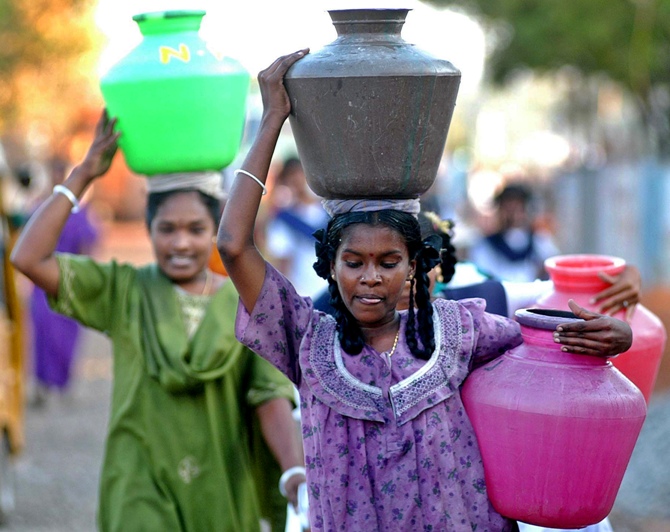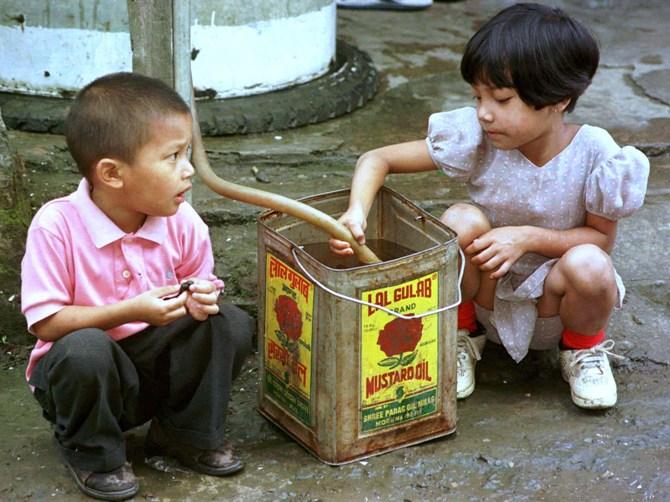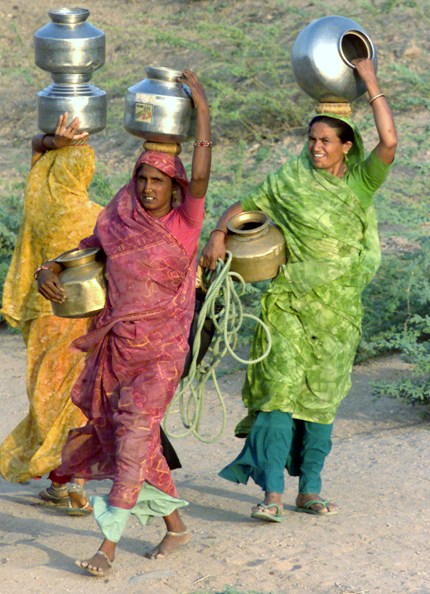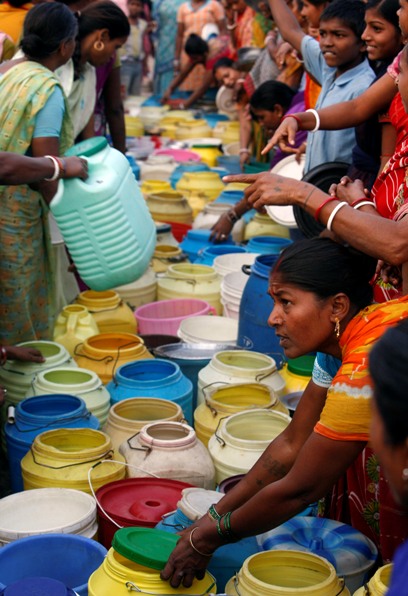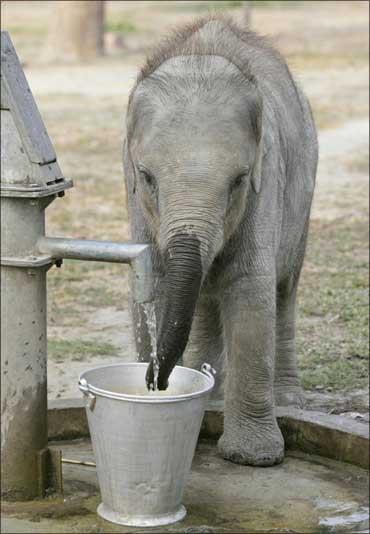 | « Back to article | Print this article |
Water scarcity: Hyderabad, Delhi will be worst hit
The worst victims of increasing water stress are the cities, many of which are already facing an acute water crisis.
A recent study by the Hyderabad-based National Geophysical Research Institute has predicted that several large cities and their satellite towns will run out of locally available water, including groundwater, in the next few years.
Hyderabad may be the first to go dry, followed by Delhi and Chennai, among others.
An earlier World Bank-sponsored study ranked Chennai and Delhi as the most vulnerable cities in Asia in terms of daily water availability.
Please click NEXT to read further. . .
Please click here for the Complete Coverage of Budget 2014 -15
Water scarcity: Hyderabad, Delhi will be worst hit
The unrealistic pricing of water and its imprudent and wasteful use in the absence of regulatory mechanisms are the chief reasons for this crisis.
Several previous finance commissions have recommended that water rates recover not only operational and management costs, but also part of the investment in water projects.
Even so, most states have not revised prices for decades; some others have done so reluctantly and inadequately.
The National Water Policy, 2002, said water rates should make the users realise its scarcity value.
Please click NEXT to read further. . .
Please click here for the Complete Coverage of Budget 2014 -15
Water scarcity: Hyderabad, Delhi will be worst hit
The unrealistic pricing of water and its imprudent and wasteful use in the absence of regulatory mechanisms are the chief reasons for this crisis.
Several previous finance commissions have recommended that water rates recover not only operational and management costs, but also part of the investment in water projects.
Even so, most states have not revised prices for decades; some others have done so reluctantly and inadequately.
The National Water Policy, 2002, said water rates should make the users realise its scarcity value.
Please click NEXT to read further. . .
Please click here for the Complete Coverage of Budget 2014 -15
Water scarcity: Hyderabad, Delhi will be worst hit
This pointed phraseology was replaced in the 2012 version of the policy with the recommendation that water be treated as an ‘economic good’.
That policy did call for curtailing subsidies on power for running water pumps -- again, not fully implemented.
Regrettably, the bulk of the rainwater that India receives every year -- especially in the monsoon season, which accounts for 75-80 per cent of total precipitation -- is allowed to run off wastefully to the seas.
Hydrology experts maintain that at least 16 per cent of it should be guided to subsurface water reserves.
Please click NEXT to read further. . .
Please click here for the Complete Coverage of Budget 2014 -15
Water scarcity: Hyderabad, Delhi will be worst hit
However, at present, less than half of that amount is so preserved.
Some cities have ordered large building complexes to install rainwater harvesting systems.
Compliance is dismal.
Worse, civic authorities are themselves not serious about rainwater conservation.
Much of the water falling on public lands is allowed to run off, choking the drains and leading to waterlogged roads.
Please click NEXT to read further. . .
Please click here for the Complete Coverage of Budget 2014 -15
Water scarcity: Hyderabad, Delhi will be worst hit
The solution to the impending water emergency, therefore, lies in conserving water in underground aquifers, as well as in surface storage structures, such as ponds, lakes and reservoirs.
Many countries have created adequate storage capacity through dams to cater to their needs over two or more years.
In India, on the other hand, the total water stocking capacity in its 85 main reservoirs is only about 253 billion cubic metres, hardly sufficient to meet a year’s requirement. Unless conservation and storage are enhanced and water is priced adequately to deter its reckless use, it may be difficult to make the country water-secure.
Please click here for the Complete Coverage of Budget 2014 -15
